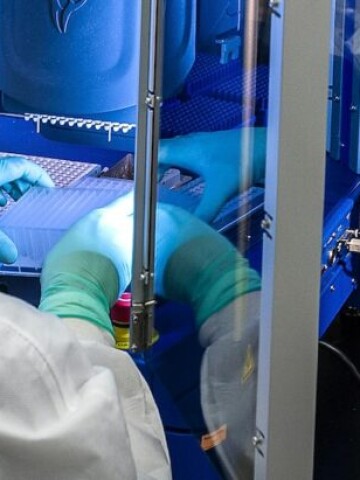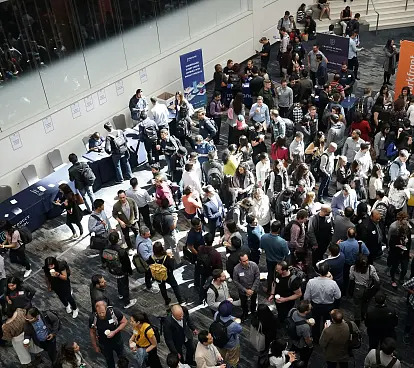
How predictive AI is transforming Healthcare
September 13, 2023
Artificial intelligence is disrupting the entire value chain in healthcare and we expect the hype to continue aided by larger datasets, new data sources, increasing computing power and more sophisticated algorithms.
Although reputed research companies anticipate a slowdown in the healthcare industry in the next few years due to economic pressure, scarce talent and supply challenges, at the same time, they consider that AI will be the key to reversing that trend. Backing up this prediction are estimates that the global AI market in healthcare will exceed $20 billion this year.
A recent Gartner study mentions that 94% of CIO’s replied that AI is the top technology to enhance, and 51% agreed that it will be the number one priority to invest in 2023.
The domain of predictive AI essentially combines machine learning techniques and statistical algorithms to analyze historical data and make predictions about future outcomes. It helps healthcare companies identify trends, behaviors, patterns and correlations on large amounts of data in real-time. These insights can be used to improve efficiency, to find opportunities for innovation and to make quicker and better decisions.
The pharmaceutical industry's commitment to adopting AI technologies and data-driven approaches highlights the excitement about predictive AI in the sector. We see many examples in drug development, drug repurposing, early disease detection, clinical trial optimization, pharmacovigilance, virtual assistants and in many other areas.
The benefits of these applications are clear, but some of the hurdles are blurry. Guaranteeing the privacy and security of the data is usually the top priority for all stakeholders in health care, but also high in the list is assuring the quality and standardization of the data, which is vital for obtaining accurate predictions. A highly regulated environment, the ethical aspects and the need to gain confidence from the medical community are also challenges to overcome.
Some applications we are already seeing and collaborating on are related to market trends and demand forecasting, supply chain optimization, sales and marketing, drug pricing, and competitive intelligence. But new use cases are being discovered at an incredible pace, and there is a strong appetite in the industry for pilot programs and proof of concept initiatives.
Among the applications mentioned above, AI can help companies predict market trends, such as demand for specific drugs and potential market disruptions and opportunities. For example, AI can help determine optimal drug prices based on market dynamics and cost structures.
AI forecasting also assists companies in managing their inventories more efficiently, reducing shortages and waste. Even from a reporting standpoint, AI can significantly reduce the margin of error in reported shortages.
In the area of Sales and Marketing optimization, AI-driven sales and marketing forecasts improve resource allocation and customer targeting. Moreover, CRM tools widely used in the industry, such as Salesforce and Microsoft Dynamics, have been quick to integrate AI capabilities within their platforms.
In terms of competitive intelligence, AI can monitor your competitors' activities and predict their impact on the market. A promising case we are working on includes tracking the development course of new drugs to identify potential competitors early on and develop strategies to stay ahead of the curve.
In all these cases, AI solutions not only help by providing information, but they provide recommendations, which can often automatically trigger a process based on those recommendations, streamlining the process from insight to action.
Sngular's track record in developing successful predictive AI projects within the pharmaceutical sector demonstrates their commitment to innovation and their ability to address pressing industry challenges. We have helped our clients optimize their supply chains, improve demand forecasting and obtain invaluable market insights that contribute to the reliability of the pharmaceutical supply ecosystem and, ultimately, benefit patients and healthcare providers alike. In these efforts, Sngular has been integrating proprietary and publicly available data to anticipate drug shortages, shifts in demand, and proactively adapt drug production strategies to stay ahead of market fluctuations.
We all recognize the indisputable potential of AI forecasting for pharmaceutical enterprises. At Sngular, we firmly believe that collaboration with our clients and partners is paramount in unlocking and harnessing this potential. We invite you to reach out and discuss how we can collaborate effectively to bring these transformative possibilities to fruition.
Our latest news
Interested in learning more about how we are constantly adapting to the new digital frontier?

Event
November 24, 2025
White Mirror 2025: the blank mirror reflecting what is yet to come

Event
October 20, 2025
Sngular is heading to the Global Health Exhibition 2025 in Riyadh, Saudi Arabia

Tech Insight
May 28, 2025
LLMs, Vibe Coding, and software development

Event
May 26, 2025
Madrid pulses with the new era of Artificial Intelligence at the Google Cloud Summit 2025
